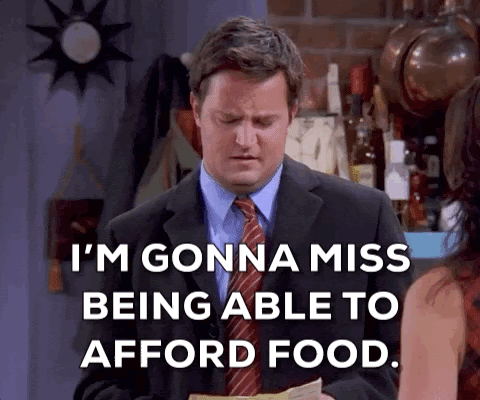|
New home listings and sales have dramatically dropped since the pandemic hit, but traffic to real estate sites has actually gone up. Why is that, you ask?
Well! According to data from Zillow, there are now more buyers actively looking for homes compared to a year ago. More people looking to buy property? In the middle of a global health crisis?? Yep! There's still a ton of interest among buyers (probably more so now as they're stuck inside their less-than-ideal homes). San Francisco, among other major cities, saw a huge drop in listing views right after the pandemic hit, but has since bounced back to much higher levels than this time last year. So what? This is significant because demand for housing is still there—it's just a matter of waiting for the supply to return to the market. With more buyers starting their search again and listings slowly trickling into the market, there's signs of pent-up demand and a backlog of listings bubbling beneath the surface just waiting to pop. With our currently vulnerable economy, many are worried that the housing market could be in trouble just like during the last great recession. And that's a totally reasonable concern, right? Wellll, not really because here’s some relieving news you guys—this is NOT like the crash in 2008. And here's why:
Once upon a time, millennials were willing to sacrifice a few stimulus checks (and then some) on each month's rent to live in a closet-sized apartment just to be part of the hustle and bustle of a city. But when all the alluring things about living in a city (like bumping into people on crowded streets, standing in ridiculously long lines for brunch, and cramming your way into packed sports arenas and concert venues) can potentially change, the possible risks of these everyday social interactions could accelerate a trend away from densely populated urban cities and into the suburbs.
After the lockdown, new home sales came to a screeching halt (as did everything else). But in the last two weeks, homebuilders have seen sales start to climb back up, particularly with dual-income first-time buyers wanting to leave their tiny apartments and buy larger move-in ready homes that they find more safety and stability in. More emphasis is now being placed on outdoor areas, functional layouts, and overall MORE SPACE. The secret is out: Doordash tastes the same from wherever you are. So how does all of this uncertainty impact the housing market?
Short Term: Despite sellers still needing to sell, inventory will decrease sharply. Listings are still trickling onto the market, but nowhere near the number it would've been had our lives not been turned upside down. While many buyers are in "wait and see what happens" mode, serious ones and those who have been "waiting for the market to go down" remain undeterred and can expect less competition with a slight corona discount. Long Term: We're going to see a deep recession, but most likely the shortest one in history, with the economy predicted to start recovering towards the end of summer. Prior pandemics showed that while the number of home sales dropped dramatically during an outbreak, home prices only decreased slightly. The pace at which prices were rising will most likely slow down, but nothing like 2008 prices as that was caused by oversupply and we still very much have a housing shortage. When all of this is said and done, the backlog of inventory combined with pent-up demand from buyers will stabilize the market again. Buuut, disclaimer: things are changing so quickly everyday that this may all be different even by next week. The news is difficult to keep up with these days! The average U.S. home costs $240,000. But in San Francisco, a two-bedroom apartment costs around $750,000 to build. The costs of construction in SF are 13% higher than New York, 60% more expensive than Chicago, and 75% more than in Houston. But why is it SO expensive?
For starters, the price of land and labor in California is insanely higher than other states. In SF, a construction worker makes about $90 an hour. (Did you just audibly gasp because you had no idea this was a construction worker's average wage and consider maybe you too could work in construction someday? Because same). But it’s not just that. There are so many costs that go into building affordable housing. Government fees, permits, hiring consulting companies.... So. Many. Things. It literally took the City Council 6 months just to agree on the financing paperwork alone. More attorneys are involved in projects than actual construction workers. And we wonder why it takes SO long to get any sort of traction on building affordable housing (or any housing at all) in the city. *Insert crying face emoji here.* |
Michaela ToAll things real estate. Categories
All
Archives
April 2022
|



